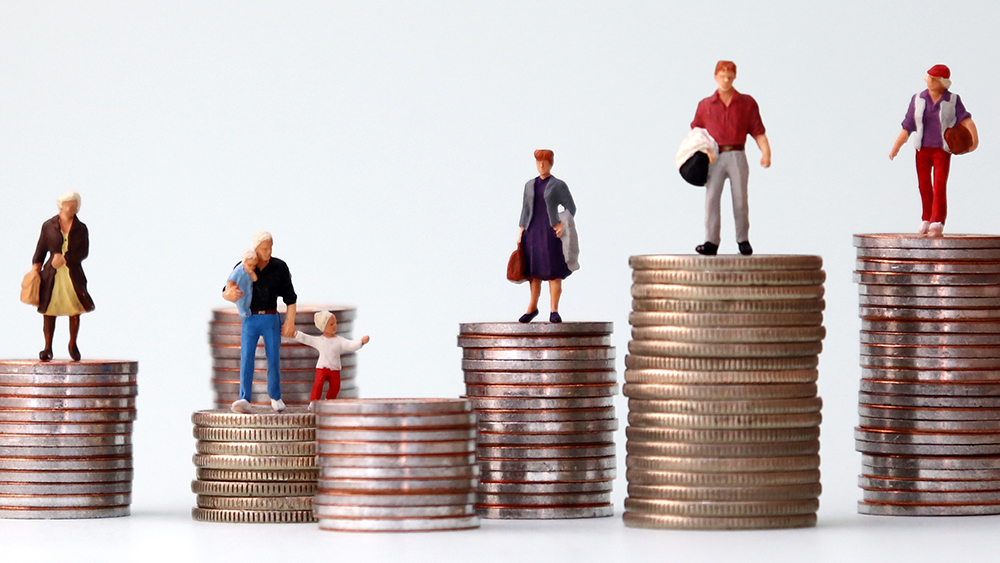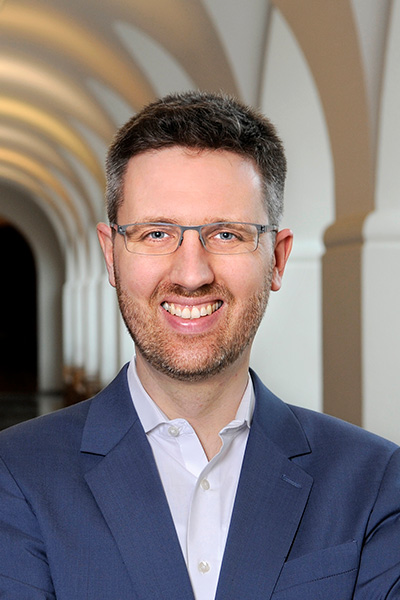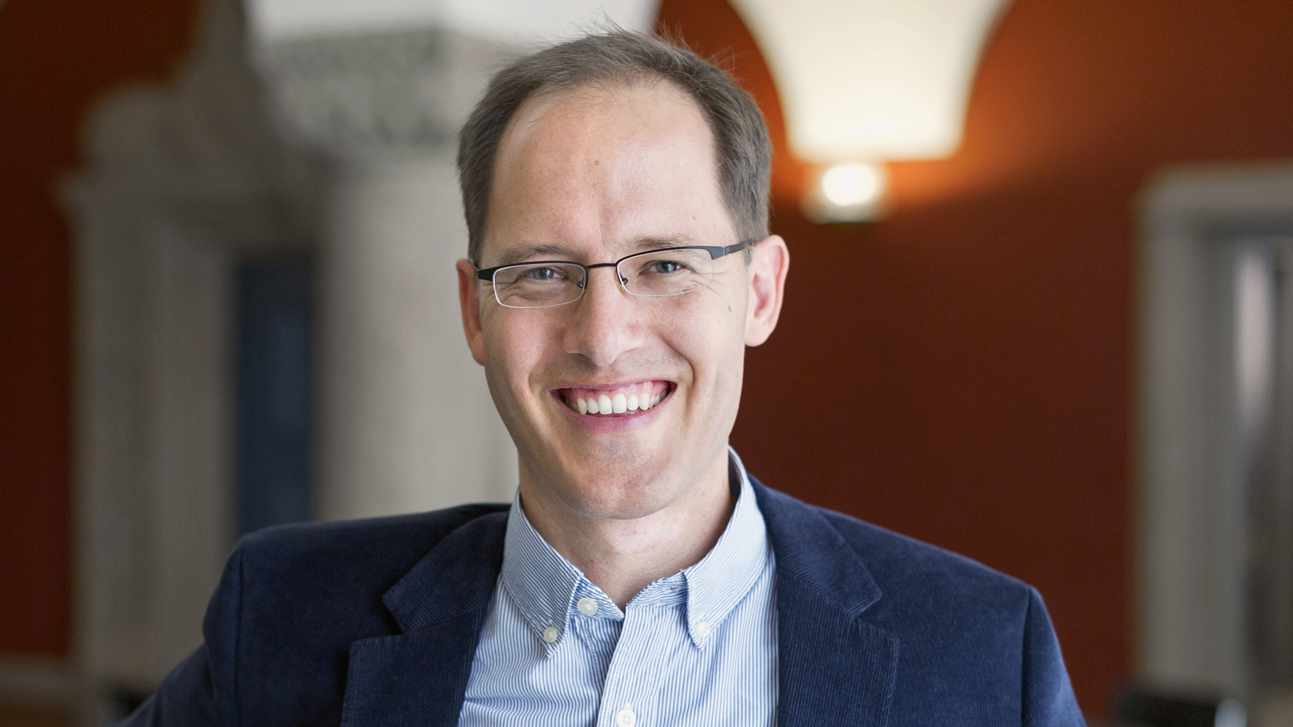Navigation auf uzh.ch
Navigation auf uzh.ch

05-12-2022: The perception that resources are unfairly distributed is at the root of many social conflicts. In a paper recently published in PNAS, Christian Ruff and Jie Hu investigate the motives influencing our perception of justice in resource distribution. They found that although people feel an aversion to inequality, they are also reluctant to harm others and to upend existing social hierarchies.
Research shows that two conflicting motives play a particularly important role in the assessment of distributive justice: inequality aversion and the reluctance to harm others. To understand how these motives interact with each other, a team around Neuroeconomists Jie Hu and Christian Ruff used functional magnetic resonance tomography (fMRT) to study the brain activity of test participants during a redistribution task.
The participants were generally more willing to make others financially worse off if this reduced inequality – in particular if the initial inequality was substantial. However, there seemed to be a limit: a redistribution that made the initially advantaged person worse off than the other was not chosen, even if this would lead to more equality overall.
Interview with Christian Ruff (German, starting min 35:53)
(8).png)
Joachim Voth has been elected to the Fellowship of the Econometric Society. Fellows represent the highest authority in the field of economic theory; the Society is an international society for the advancement of economic theory in its relation to statistics and mathematics.
Dina Pomeranz and her Team won the Innovation in Teaching Award from the European Economic Association (EEA) for their work with the Graduate Applications International Network (GAIN), which supports students from all African countries entering Economic studies.
David Hémous receives the European Award for Researchers in Environmental Economics under the Age of Forty for his significant contributions to the analysis of the role of technological changes, the dynamics of the economy and of climate change.
Sandro Ambühl and co-authors win 2022 Exeter Prize for their paper “What motivates paternalism? An experimental study”.
Sandro Ambühl awarded an SNSF Starting Grant by the Swiss National Science Foundation (SNSF) for his project “Positive Welfare Economics”.
David Dorn has been elected to the Council of the European Economic Association (EEA). He will sit for a term of five years, starting on January 1, 2023. David Dorn will join Dina Pomeranz and Florian Scheuer from our Department in this role.

11-11-2022: Sandro Ambühl has been awarded an SNSF Starting Grant of CHF 1.3 million by the Swiss National Science Foundation (SNSF) for his project “Positive Welfare Economics”. Congratulations.

13-10-2022: A study by the universities of Zurich and Mainz has shown that teaching children how to manage their attention and impulses in primary school has a positive long-term effect on their later educational success.
Self-regulation, i.e., the ability to manage attention, emotions and impulses, as well as to pursue individual goals with perseverance, is not a skill that we usually associate with young children. However, the school closures due to the pandemic and the increased usage of digital media by children have now shown how important these abilities are, especially for children.
Studies show that people who demonstrated self-regulation as children go on to have on average higher income, better health and greater life satisfaction. They also show that the ability to exert self-regulation can already be trained in a targeted manner in childhood. How can the training of self-regulation skills be integrated into the standard elementary school day without taking up too much teaching time? Is it possible to teach young pupils an abstract self-regulation strategy in an appropriate way? Does teaching such skills have the potential to improve long-term educational success?

26-09-2022: Joachim Voth has been elected to the Fellowship of the Econometric Society. Fellows represent the highest authority in the field of economic theory. The Econometric Society is an international society for the advancement of economic theory in its relation to statistics and mathematics. Since its founding in 1930, the Society has elected only 700 fellows; 69 of them have won the Nobel Prize in Economics. Joachim Voth is the second member from the Department of Economics, after Ernst Fehr, to receive the honor. The Society’s members nominate new Fellows each year in the fall. Prof. Voth’s area of specialization is economic and financial history. His research has been published in leading journals in economics, as well as in three books. His principal areas of research include long-run economic growth, the history of sovereign debt, causes and consequences of political extremism, and the economic history of the Industrial Revolution.
Fellows of the Econometric Society 2022

2022.03.07: According to a recent study in "Nature Communications", even moderate alcohol consumption is associated with a smaller brain volume and a reduced mass of grey and white brain matter.
It is well known that chronic excessive alcohol abuse is detrimental to health. However, the evidence to date is contradictory as to whether light to moderate alcohol consumption could have similar negative consequences.
Gökhan Aydogan, a postdoctoral researcher at the Zurich Center for Neuroeconomics, was part of the international and interdisciplinary research team that studied a huge sample of 36,678 adults from the UK. "We already found negative associations between alcohol consumption and brain structure in people who consumed only one to two units of alcohol per day," he summarizes the findings. In the study, one pint of beer or a large glass of wine was considered to be two units of alcohol.
Effects are worse the more you drink
The study offers evidence that the effects of alcohol consumption on the brain are exponential. Gökhan Aydogan explains: "The last beer is not only responsible for the hangover, but also has a greater negative effect on brain ageing than all the previous ones consumed that day".
The researchers assume that brain of people consuming one unit of alcohol per day age around 1 year more than the brains of people who consume no alcohol at all. At four units per day, the difference in brain ageing is ten years.
The authors emphasize, however, that the study was not designed to establish a causal relationship between alcohol consumption and the change in brain structure, i.e. to prove a cause-effect relationship. Further studies on this would therefore be of great interest.
Article in Nature Communications
Guilherme Lichand’s Social Entrepreneurship Seminar asks students to solve a social challenge by developing an idea and a viable business plan. Students acquire practical skills such as how to develop a business idea and create a business plan, measure social impact, pitching ideas to funding panels, mentoring, and handling setbacks.
To kick off this year’s seminar, the participants were invited to a private screening of two film: Machines, a portrait of workers in an Indian textile factory and Invisible Demons, an immersive documentary on the effects of climate change.
Introducing the following panel discussion Guilherme Lichand said how the poetic, yet disturbing documentaries left him hanging between hope and despair about the challenges the world is facing today. Rahul Jain, the director of both films, Simona Scarpaleggia, Cedric Mutz and Guilherme Lichand shared their perspectives and experiences in projects improving the working situation of individuals and environmental issues.

2022.01.31: Why do some young men turn to crime, while others don’t? An international study shows that preferences such as risk tolerance, impatience and altruism as well as self-control can predict who will commit crime.
According to economic theory, risk-tolerant, impatient and selfish people with a low level of education are more likely to commit crime than people who are highly educated, risk averse, patient and selfless. However, confirming this hypothesis with scientific methods isn’t that easy. The education levels and socioeconomic factors of convicted criminals can be compared with those of the general population relatively easily. But assessing people’s risk tolerance, patience and altruism is much more difficult. Together with an international team of economists, Ernst Fehr has published a study that links data on risk, time and social preferences of young men to factors such as education, income, self-control and criminal records. Risk-tolerant, impatient young men are more likely to commit property crime, while people with low self-control tend to commit violent, drug and sexual offenses.

2022.01.04: The Society for the Advancement of Economic Theory (SAET) elected Florian Scheuer Economic Theory Fellow. Economic Theory Fellows are nominated based on their scientific excellence, originality, and leadership, high ethical standards, and scholarly and creative achievement. The primary qualification for fellowship is to have substantially advanced economic theory. Congratulations!

2021.12.03: There are still considerable income differences between men and women. The largest part of the pay gap is due to maternity. This is because, after the birth of the first child, the salaries of mothers fall sharply behind those of men and childless women. The "child penalty" measures the difference in income between mothers and women without children. On average, Swiss mothers earn 60 percent less in the year after the birth of their first child than they did before motherhood. This number remains constant in subsequent years. Switzerland even has one of the highest child penalties among OECD countries.
Empirical studies have shown that family policies such as extended parental leave, job guarantees, or subsidized childcare only have a short-term impact on the child penalty. Gender norms – more specifically, the role of women in the conflicting fields of family and career – have a greater impact on the overall measure of the child penalty: the more conservative the environment, the higher the child penalty. In conservative countries such as Germany, Austria and Switzerland, the child penalty is multiple times higher than in the socially liberal countries of Scandinavia. Therefore, Joseph Zweimüller argues for a better understanding of the factors responsible for the adherence to conservative gender norms in order to eventually reduce the existing inequalities between men and women.
Schweizer Monat (in German)
2021.12.01: With its Belt and Road initiative, China has invested a lot of money in infrastructure projects in many countries. Now the EU is setting a strong geopolitical counterweight with its rival project Global Gateway. The EU wants to invest 300 billion euros in emerging and developing countries for environmental protection, health, energy, and transport. The project should on the one hand be able to meet local needs and on the other address global challenges, says EU Commission President Ursula von der Leyen. This is a new strategic approach to investment. Unlike China, the EU wants to involve the private sector in financing. The countries in which investments are made should have a trustworthy partner in the EU. Van der Leyen emphasizes that Global Gateway should give the EU countries a competitive advantage.
How realistic is this plan in view of China’s enormous efforts? The European response differs in two main respects, explains Ralph Ossa: "First, in terms of investment volume. The Chinese plan is about three times larger than the European one. The second major difference lies in the investment priorities. The Chinese are investing primarily in transportation infrastructure. The Europeans are focusing differently, for example on digitalization." According to Ossa, the EU can offer a valuable alternative with its program for those countries that have had no choice but to cooperate with the Chinese because they urgently need the infrastructure projects.
SRF Tagesschau (in German)

2021.11.03: The Zurich Graduate School of Economics (Zurich GSE) is recruiting new PhD students. Applications are now open.

2021.10.22: The University of Zurich's teaching credit promotes innovation in teaching and the further development of existing teaching formats. The ECON Teaching Center receives a UZH teaching credit for their project 'Gamification of learning content' which expands the learning opportunities for students in playful ways. A browser-based game picks up on the course content and combines it with competence experience, self-determination, social inclusion and meaning. In a playful way, students are guided through all taxonomy levels in a game unit. The project leads to more active learning time and an understanding of the applications of the course content in practice. Added value for teaching results from interdisciplinary transferability, portfolio expansion of teaching opportunities and efficient application of the taxonomy levels. The game is developed for the module Microeconomics 1 taught by Ulf Zölitz.